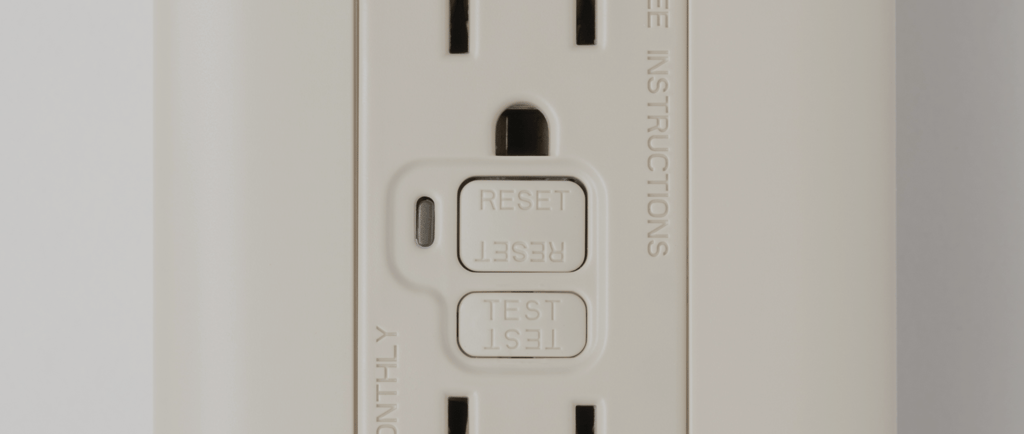Inspector Terms - What is A GFCI?
When it comes to keeping your home safe from electrical hazards, understanding the components of your electrical system is key. One crucial element that plays a significant role in protecting you and your family is the Ground Fault Circuit Interrupter (GFCI). But what exactly is a GFCI, and why should you care about it? Let's dive into what a GFCI is, how it works, and why it’s essential for your home.


When it comes to keeping your home safe from electrical hazards, understanding the components of your electrical system is key. One crucial element that plays a significant role in protecting you and your family is the Ground Fault Circuit Interrupter (GFCI). But what exactly is a GFCI, and why should you care about it? Let's dive into what a GFCI is, how it works, and why it’s essential for your home.
What is a GFCI?
A Ground Fault Circuit Interrupter (GFCI) is a type of electrical outlet designed to protect you from electric shock. Unlike standard electrical outlets, GFCI outlets are equipped with technology that can detect when the electrical current is not flowing properly—such as when it is leaking to the ground. If it detects an imbalance, the GFCI outlet quickly shuts off the power to prevent injury.
How Does a GFCI Work?
A GFCI outlet constantly monitors the flow of electricity through the circuit. It compares the amount of current flowing into the outlet with the amount flowing out. If there’s a difference as small as 4 to 6 milliamps (which can occur if electricity is leaking to the ground), the GFCI reacts within milliseconds to cut off the power.
Why Are GFCIs Important?
Prevents Electric Shock: The primary purpose of a GFCI is to prevent electric shock by shutting off the circuit when it detects an imbalance. This is particularly important in areas where electrical outlets are exposed to moisture, such as bathrooms, kitchens, and outdoor spaces.
Reduces the Risk of Electrical Fires: By interrupting the circuit when it detects an imbalance, a GFCI helps prevent potential electrical fires caused by faulty wiring or short circuits.
Increases Safety in Moist Areas: Because moisture increases the risk of electrical shock, GFCIs are required by electrical codes in areas like bathrooms, kitchens, and outdoors. Ensuring these areas have functioning GFCI outlets is crucial for safety.
Where Should GFCIs Be Installed?
GFCI outlets should be installed in any area where electricity and water might come into contact. According to electrical codes and standards, GFCIs are required in the following locations:
Bathrooms: Near sinks and bathtubs where water is present.
Kitchens: Near sinks and countertops where splashes or spills can occur.
Outdoor Areas: Such as patios, garages, and exterior outlets exposed to weather.
Basements: Especially where there might be damp conditions.
Laundry Rooms: Near washing machines and utility sinks.
How to Test and Maintain GFCIs
Test Monthly: GFCI outlets come with a “Test” button and a “Reset” button. Press the “Test” button to simulate a ground fault. The power should immediately cut off. Press the “Reset” button to restore power. Regular testing ensures that the GFCI is functioning correctly.
Keep Clean and Dry: Make sure the GFCI outlets are clean and dry. Dirt and moisture can affect their performance. If an outlet feels warm or shows signs of wear, it should be replaced by a professional.
Call a Professional: If your GFCI outlet frequently trips or fails to reset, it may indicate a larger electrical problem. Contact a licensed electrician to inspect and address the issue.
Common GFCI FAQs
What if my GFCI keeps tripping? Frequent tripping can be a sign of an electrical issue or overload. Check for faulty appliances or consult an electrician for a thorough inspection.
Can I install a GFCI myself? While it’s possible for a homeowner with electrical experience to replace a GFCI outlet, it’s best to hire a licensed electrician to ensure proper installation and safety.
Are GFCIs required in older homes? GFCIs are now required by code in specific areas. If your home doesn’t have them where required, consider upgrading to enhance safety.
A Ground Fault Circuit Interrupter (GFCI) is a simple but vital safety feature that protects you and your family from electrical shock and fire hazards. By understanding how GFCIs work and ensuring they are installed and maintained correctly, you can enhance the safety of your home and reduce the risk of electrical accidents.
If you have questions about GFCI installation or other electrical concerns, Just Call Joe Inspections is here to help. Our team can assist with inspections and ensure your home meets all safety standards.